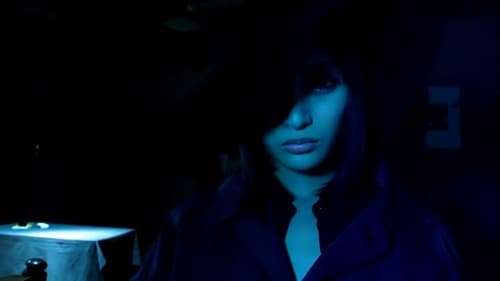
Oar and Miho, who live in a seaside town, go back and forth between each other's houses, and their parents are childhood friends. Oar, who was in charge of managing the canning factory, decided to go to Tokyo to receive training that looked ahead to the future. On the last night before the departure, Oar and Miho are fiercely seeking each other. The next morning, they talked about the future while walking along the beach and made a promise such as calling once a day. However, Oar who is worried about unfamiliar sales work and human relationships. Miho also discovers her father's illness, is exhausted by her nursing and long-term care, and she can no longer keep the phone once a day. Eventually, Oar was forced to leave the office after witnessing his boss's infidelity and being dressed in his embezzlement. Oars who cannot speak honestly cannot return to their hometowns, and they pass each other and become estranged.

Kazuko
Yuriko (Kotomi Asakura), who lost her only young daughter and divorced, became a dumb woman due to the shock. She then started a part-time job at a small lunch box shop in a provincial city where she had drifted. The owner, Sato, had a wife, Kazuko (Firefly), and a daughter, Kyoko (Rina Hatsume). It was a dumb relationship. There was a man in the store who had a dark shadow who came to buy two lunch boxes every day. Yuriko, who cares about the man, follows him, and she finds out that the man is making a woman named Maki (Kyouko Maki) prostitute in a truck parked in the open space she arrived at ...

1726, Sanchu, Okayama Prefecture: farmers negotiate with the feudal domain in order to seek exemption from rising taxes. Infighting leads to suppression by the samurai class, and the farmers band together for battle. It’s a moment of injustice, setting the stage for bravery and sacrifice. However those daring characters remain largely offscreen in Juichiro Yamasaki’s brilliant film. Instead, the cowardly protagonist Jihei (Naohisa Nakagaki) faces a crisis of the risks of rebellion and its aftermath that resonates with our contemporary moment. In this rare independent jidaigeki, Kenta Tawara’s beautiful digital B&W photography channels and refigures luminaries of classical Japanese cinema, boasting rapturous animated sequences by Tomomichi Nakamura and experimental score by Ayako Sasaki.

Um garoto que vive com os pais em Kyioto viaja a Tokyo a negócios e fica com seu parceiro sexual

Yasuko
After a happily married couple running a hot spring resort are awakened to their sadomasochistic desires, their relationship will never be the same.

Nami Matsushima, prisoner #701 is sent to a Woman's Prison for attempted murder. Nami is brought into Number 2 community cell, where suicides and unnatural deaths occurred one after another. In the punishment cell, Nami begins to look back in her past. After dealing with her horrible experiences, Nami seeks to escape from prison. Who will survive?

Kumosuke walks out on his pregnant lover, Fumiyo, and goes to see his old lover, Kiyoko. Even though Kiyoko's husband, Sachio and her sister, Hikaru think Kumosuke suspect, Kumosuke pretends to be Kiyoko's brother and stays in her house unconcernedly. One day, Kiyoko suffers from constipation and begs Kumosuke to suck out feces from her mouth. As Sachio gets jealous for being stolen his part of sucking his wife out, he does the same thing to Hikaru, which causes a collapse of the family. The meeting and parting of strange and sad people. Where the story heads to...

A highly contagious incest virus induces several generations of a Japanese family to have sex in all possible constellations and across gender boundaries – and with that man in a bear costume who suddenly appears? Only in Japan!

Mei Machida
Chikan densha: Yume yubi de shiri meguri (痴漢電車 夢指で尻めぐり) is a 2010 Pink film directed by Yoshikazu Katō and starring Kaho Kasumi. It was named Fourth Best Film of the year at the Pink Taishō ceremony and Atsushi Tsuda was given an award for Best Actor. Kōsuke Komatsu was given the award for Best Screenplay, though the screenwriter is credited as Tsutomu Kondō.







